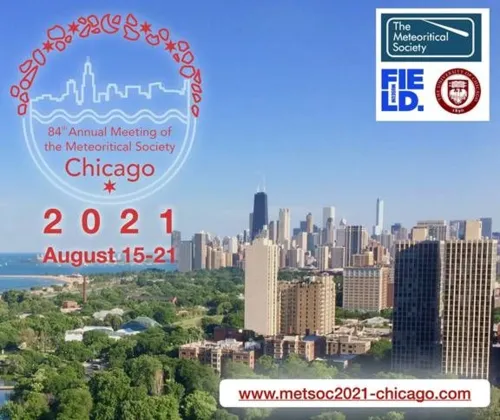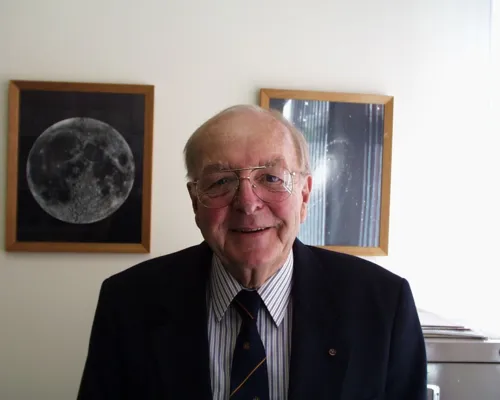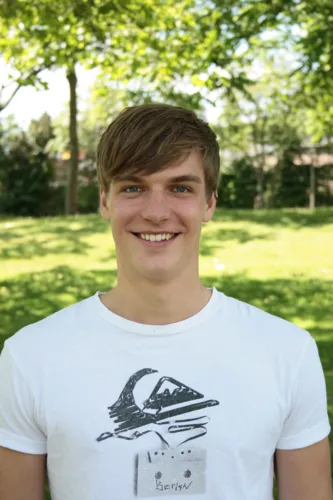Support for Early Career MetSoc Members Attending the 2021 Goldschmidt Conference
The Meteoritical Society wants to encourage early-career meteoriticists to participate in the upcoming 2021 Goldschmidt Conference, organized by the European Association of Geochemistry and the Geochemical Society. This Goldschmidt conference will be virtual (July 4-9, 2021), and many of its sessions should be of interest to members of our Society. To encourage participation, the Meteoritical Society Council will award selected participants an annual membership in the Society for 2022, including an electronic subscription to the Society journal, Meteoritics and Planetary Science. Other benefits of membership can be found here: https://meteoritical.org/society/membership . For these awards of Society membership, we invite applications from early career researchers (undergraduate or graduate students enrolled at any college or university, or other researchers within 5 years of their PhD). Applicants must be engaged in research on meteorites, and need not be currently associated with the Society. For those applicants who are selected, we will support your continued research and interest in the Meteoritical Society by awarding a membership in the Society for 2022, including an electronic subscription to our journal, Meteoritics and Planetary Science. Preference may be given to those who present their work at the Goldschmidt2021 conference, and members from countries with a low-income economy (https://datahelpdesk.worldbank.org/knowledgebase/articles/906519), but neither is a requirement for an award. Prior recipients of a membership award are not eligible. More…
Festschrift for Edward Anders
Dear Colleague, I am trying to reach people who either collaborated with or cited work by Edward Anders, former President of the Meteoritic Society (1991-92). (He has over 14,000 citations.) We would like to present him with announcement for a book that is tentatively titled: Organic Matter in Meteorites: A Festschrift for Edward Anders on his 95th Birthday This call is also open to all people who work in this area, including the impact of meteoritics on astrobiology or the origin of life. The mineral background is also important. The book will be published by Wiley-Scrivener, giving us the advantage of a small publisher and a large distributor of science books. It would be the 9th book in the series, Astrobiology Perspectives on Life of the Universe book series (Series editors: Richard Gordon & Joseph Seckbach, Wiley-Scrivener), most presently in press. If you would like to contribute, please send me a tentative title and authorship (you may invite co-authors of your choice). Personal comments may be included. Submissions will be peer reviewed. If perchance you would also be prepared to help out as a Guest Editor, please let me know. Ed Anders' birthday is June 25, so please respond beforehand, if possible. Please let me know if August 31, 2021 would be a reasonable submission deadline for you. Beginning of a Tentative Table of Contents (commitments so far): Guest Editors & Gordon, Richard, Preface, with bibliography by/on Edward Anders, dickgordoncan@xplornet.com Deamer, David, Ed Anders: Exploring the extraterrestrial wilderness, dwdeamer@ucsc.edu Saikia, B.J., Parthasarathy (Partha), G., & Borah, R.R., Organic Matter in Meteorites- Experimental findings from Fourier transform and Micro-Raman Spectroscopic Investigations, drg.parthasarathy@gmail.com Seckbach, Joseph, Life as a scientist, joseph.seckbach@mail.huji.ac.il We need 15 to 25 chapters. As an undergraduate working with him on the Orgueil meteorite I learned much from Ed, and resumed working in astrobiology after retirement. Thus my personal involvement. Thanks. Yours, -Dick Gordon DickGordonCan@xplornet.com Canada: 1-(204) 767-2164 Skype: DickGordonCan@xplornet.com More…
Registration for the 84th Annual Meeting of the Meteoritical Society in Chicago

The 84th Annual Meeting of the Meteoritical Society on August 15–21, 2021, will be an in-person meeting held at the Hilton Chicago located downtown with views overlooking Grant Park, Lake Michigan, and the Museum Campus. Virtual attendance will be possible for those who cannot travel to Chicago. Registration Early registration closes on June 15, 2021. Regular registration closes on July 30, 2021. The deadline to cancel registration with a full refund is July 30, 2021. The Meteoritical Society will be implementing a series of health and safety protocols and onsite precautions in light of the ongoing COVID-19 pandemic. As new developments arise over the coming months, our approach will adapt, and we will keep the community informed of any changes. Onsite health and safety measures and requirements for in-person participation will be communicated at least two weeks prior to the start of the event. By registering for the Meteoritical Society’s 84th Annual Meeting as an in-person attendee, you are consenting to compliance with any health and safety protocols published by the Meteoritical Society, the organizing committee, the Hilton Chicago, and/or local health officials. More…
Student and Early Career Travel Awards for MetSoc 2021
Hi everyone! I'd like to draw your attention to the Student and Early Career Travel Awards for MetSoc this year. A limited number of travel awards will be available to undergraduate and graduate students and post-doctoral members of The Meteoritical Society. The purpose of the financial support is to enable conference participation of early career researchers with limited sources of funding. Please go to: https://www.metsoc2021-chicago.com/travel-awards to check out eligibility, and for the application form. Any questions, please contact the Chair of the Travel Award Committee, Dr. Jemma Davidson: jdavidson at asu.edu. The deadline is June 4th, 2021, so don't delay! More…
Stuart Ross Taylor (1925-2021)

Stuart Ross Taylor, Leonard Medalist (1998) and former president of the Meteoritical Society (1989-1990) passed away at his home in Canberra, Australia, this month. Ross was a geochemist who made seminal contributions to our understanding of the origin and evolution of Earth’s continental crust, and the composition and origin of the Moon, meteorites, tektites, and the solar system. More…
Pellas-Ryder Award for 2021 to Jan L. Hellmann

Jan L. Hellmann, currently a postdoc at the Institut für Planetologie, University of Münster, Germany, is awarded the 2021 Pellas-Ryder Award for his paper titled “Origin of volatile element depletion among carbonaceous chondrites” published in Earth & Planetary Science Letters in 2020. Jan Hellmann was a PhD student at the Institut für Planetologie, University of Münster, working with Thorsten Kleine, when the paper was submitted. He analyzed the isotopic composition of tellurium, a moderately volatile element, in carbonaceous chondrites to find that mass-dependent Te isotope fractionation correlated with matrix mass fraction and nucleosynthetic chromium (Cr-54) isotope compositions. More…
Günter W. Lugmair (1940-2021)
Günter W. Lugmair passed away on March 31 after a short illness. A Fellow of the Meteoritical Society since 1980 when he also served as an organizer of the Annual Meeting in La Jolla, and winner of the society’s Leonard Medal, Günter’s mastery of the mass spectrometer pushed the precision of isotopic measurements to new levels. He pioneered the applications of new radiometric systems and measurements of nucleosynthetic anomalies to fundamentally advance our understanding of the processes operating in the early Solar System. More…
ExMAG Call for Members 2021
The Extraterrestrial Materials Analysis Group (ExMAG, formerly CAPTEM) is seeking applications for open positions starting in April 2021. If you are interested in serving on ExMAG, please apply by March 31, 2021. Applications should consist of a short statement describing your interest and qualifications for the position sought and a two-page CV; send to ExMAG.community@gmail.com. Potential members should be prepared to attend the ExMAG Spring Meeting April 7-8, 2021, which will be held virtually. Exploration Hardware. One regular member of ExMAG with experience or expertise in the curation and user base for space-exposed Exploration Hardware is sought. Facilities and Informatics Subcommittee Chair. The Facilities and Informatics Subcommittee provides analysis to NASA concerning the operation, maintenance, construction, and future planning for curatorial facilities and data-serving capabilities for NASA-held collections, in consultation with the PI community and Curation at Johnson Space Center. Lunar Subcommittee member. The Lunar Subcommittee provides assessment and analysis for all aspects of current and future lunar sample curation, including sample and hardware handling processes, contamination control, documentation, and facilities design, care, and use. Meteorite Subcommittee members. The Meteorite Subcommittee provides assessment and analysis for all aspects of current and future Antarctic meteorite sample curation, including sample and hardware handling processes, contamination control, documentation, and facilities design, care, and use. More…
ExMAG/CAPTEM Town Hall Meeting
An ExMAG (formerly CAPTEM) town hall meeting will be held virtually on February 25, 2021 from 3:00–5:00 p.m. EST. The committee, formerly known as the Curation, Analysis, and Planning Team for Extraterrestrial Materials (CAPTEM), is changing! This town hall meeting will be for the community to learn about the transition from CAPTEM to the Extraterrestrial Materials Analysis Group (ExMAG), upcoming ExMAG spring and fall meetings, opportunities for membership on ExMAG, and to ask questions. More…
Frontiers in Mars Sample Chronology
Frontiers in Mars Sample Chronology March 24-25, 2021 A virtual workshop sponsored by The Meteoritical Society and The Mineralogical Society of Great Britain and Ireland Determining the absolute ages of Mars samples is a key objective for current and future Mars exploration. Recent work on martian meteorites has pushed the analytical envelope in Mars sample geochronology; this work informs future plans for the geochronology of samples returned to Earth through Mars Sample Return, an effort that starts with the collection and caching of samples by the NASA Mars 2020 Mission. The goal of this workshop is to review recent results; identify and elaborate on the frontiers in spatial and isotopic resolution, and minimum sample mass; and consider advances that will be required to optimize the geochronology of future samples of Mars. Registration is free, but pre-registration is required. Abstract deadline is 5th March. We hope you can join us! Co-conveners: James Darling, University of Portsmouth Christopher Herd, University of Alberta More…